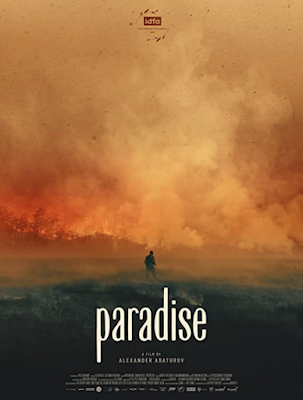The Narrow Margin (1952, directed by Richard Fleischer) was completed in 1950, but wasn't released by RKO Pictures for another two years. When a studio shelves a film for two years before releasing it, that ordinarily means that the powers that be have no faith in the project or that the studio is going through some kind of transition at the top. It's almost never a good thing for the picture and it is often an omen portending a financial or critical disaster. In the case of The Narrow Margin, however, RKO and its then-owner Howard Hughes felt that the film was too good to waste on non-bankable actors. Hughes wanted to remake the film with Robert Mitchum and Jane Russell. At some point, he had the film delivered to his private screening room where according to legend, he promptly forgot about it. And there it sat for two years. When it finally saw release, it proved to be RKO's biggest money-maker of 1952, a turn of events enhanced by the film's minuscule $230,000 budget, which was small even by 1950 standards. Hughes's instinct about the film was correct. It was good. Damned good. While it might have worked just fine in color with Robert Mitchum and Jane Russell, it's hard to imagine such a film bettering Fleischer's film or improving on the hard-boiled performances of perennial B-movie actors Charles McGraw and Marie Windsor. This was born to be a pulpy B-feature, one of the best of its kind, and it needed those pulp actors to give it just the right flavor.
"The fool, the meddling idiot! As though her ape's brain
could contain the secrets of the Krell!"
Made by a human being. AI is the death of culture.
Pages
Friday, March 31, 2023
Sunday, March 12, 2023
True/False 2023: Fathers and Mothers
Red Herring (2023, directed by Kit Vincent) starts with an image of a man swimming at twilight. This man is the director's father, Lawrence, who is dealing with the knowledge that he is going to outlive his son. The Sword of Damoclese hanging over Kit Vincent and his family is an inoperable brain tumor that will kill him in four to eight years. The film covers four of those years. It's mostly about the relationship between Kit and Lawrence, and how they deal with impending mortality, but it also spends time with Vincent's estranged mother, and less so with his partner. His father's confrontation with mortality leads him to philosophical Judaism and ultimately a conversion to that faith. His mother has been keeping a secret about her own parentage that the film drops about two thirds of the way through, potentially creating a drastic reexamination of Vincent's relationship to his mother, though that never materializes. The film is organized around the director's brain scans which provide chapter stops for the film of a sort, in which the entire family gathers around the cell phone to listen to the results.
Monday, March 06, 2023
True/False 2023: Knocked Up
How To Have an American Baby (2023, directed by Leslie Tai) takes a long look at the practice of Chinese tourism to the United States in order to give birth to children on American soil, thus granting the children citizenship. This is facilitated by so-called "maternity hotels" who host the mothers while they wait out the last three or four months of their pregnancies. These facilities are sometimes apartment buildings, sometimes residential houses, which the services own and rent to their customers for a premium. They also arrange health care. There is a booming economy in birth tourism on the West Coast. As you might guess, certain kinds of American citizens have their panties in a twist over this, though for entirely wrong reasons.
Saturday, March 04, 2023
True/False 2023: Masculine and Feminine
Here's another dispatch from True/False. The festival's programmers don't set out to rhyme the films on the schedule with one another, but sometimes they do in spite of themselves.
Thursday, March 02, 2023
True/False 2023: Fire and Myth
The annual True/False film festival has rolled into my fair city once again. Once again, I'll be offering notes from the interior.
The impending climate apocalypse has been on the mind of documentary filmmakers for years at this point. They point their cameras at any number of canaries in the coal mine, be it arctic ice, desertification, climate-induced wars, and what have you and they still have no effect in changing the direction of the world. It sucks to be a Cassandra. Always has. The subject of Paradise (2022, directed by Alexander Abaturov) is wildfires in Siberia, but that's only cover for its real concerns. It points an accusing finger at the true authors of climate change while suggesting that community and mutual aid is the way we might survive it. Maybe.




